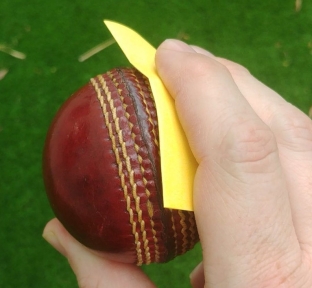Magnum P.I. Wasn’t Real
Something strange happens when you turn 40. As conventional wisdom goes, you are now at the midpoint of your life and it’s time to perform a check-in, a stocktake of your achievements to date. It’s an opportune time to take note of how far along you have progressed down your bucket list. Time to think about who you are, and where you are going.
This is potentially an unpleasant process. It could end with you having to explain the presence of a brand new red Ferrari in the driveway, and why at least one of the children will not, unfortunately, be attending university.

Now, I would argue that if you can afford a nice red Ferrari in your early 40s, you have no business having a crisis of any sort. Life, it would seem, is treating you just fine. For the rest of us, however, the closest we will ever come to a red Ferrari is watching repeats of Magnum P.I. We are the ones who will spend much energy comparing what could have been to what is, dreams to reality.
This is not necessarily a bad thing. For example, today is my 44th birthday. No, there is no shiny sports car in the driveway, but I do drive a vehicle I like. The Hawaiian mansion Tom Selleck inhabited on our TV screens in the 1980s was never going to happen, but I can have no complaints with my lovely home. I have three perfect children and a wife I actually like, even if she does occasionally put England football shirts on our sons.
Rather it is the Proteas, those 12 strangers I am condemned to drag behind me for the rest of my life, who are getting me down. This is not a criticism of their world cup performance per se – anyone can have a bad day at the office, or even a rubbish month. It happens.
Rather it is the realization that there is one youthful dream, perhaps the last, that I now know deep in my bones that I will never see come true, and that is depressing me.
Following any sports team can be a roller coaster ride, and the Proteas are no different. It’s not all been bad, and we must be fair, there have been some awesome times and some great victories and memories. One could even well argue that on balance, the good times outweigh the bad. But each generation has its own relationship with its sporting teams, and for my contemporaries and I, we have now hit our sporting mid-life crisis.
As I said in my first ever post, at the heart of it is a very special window in history. The Proteas came to life just as we were coming into adulthood, and that is a relationship that is unique to my generation. The passion and excitement of those early days as our team came from nowhere to the very cusp of ultimate glory, fueled our own dreams and aspirations as we forged our paths ahead. If they could achieve greatness, why not us?
And then we grew up. Whatever dreams we may have had as children, some were fulfilled, some not, some only in part. That’s normal. Real-life experience will have readjusted our perspectives and expectations. We matured, our interests changed, our priorities shifted.
But one dream was always a little different, a little special. It was innocent and pure, almost childlike. None of us knew for sure what direction our lives would take, but whatever our futures held, there was never a question that one day we too would see our team take its turn on the World Cup winner’s podium. Not even successive failures could subdue that cry of destiny. The disappointment of 1996, the horror of 1999, up to the last-over heartbreak of 2015, each failure may have lowered the volume a notch, but you could still hear it.
In 2019, the music died.
I’m not saying that life is now bad. Of course not. It’s all about perspective. Things change. One fears that we are now on another cusp, and a prolonged period of mediocrity looms. The Australians who barely a year ago were cheating pariahs, now look like world-beaters once again. It’s not fun.
But nothing else in my life is the same as it was when I was 18, and I am all the better for it. Time for the 17-year-old who broke the furniture at seeing 22 needed off 1 ball, or the 24-year-old so broken by the 1999 Edgbaston disaster he sobbed into his pillow, to move on.
The root is strong, despite almost 20 years away, and I will always follow my team. I will always care. But the South Africa of my youth is no more, and even if it was, I left a long time ago. My inner sports-fan needs to recalibrate himself and acknowledge what the rest of me knows to be true: the Ferrari isn’t coming, and that’s okay.
GPF

